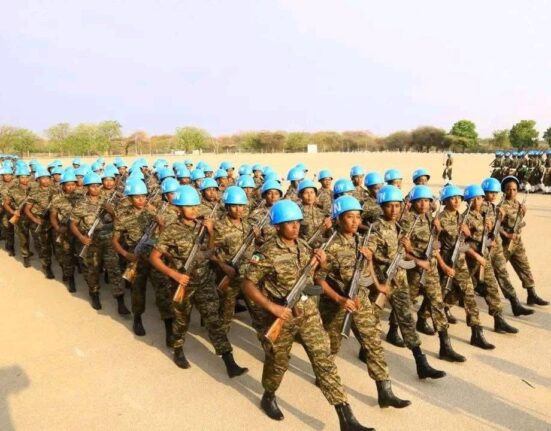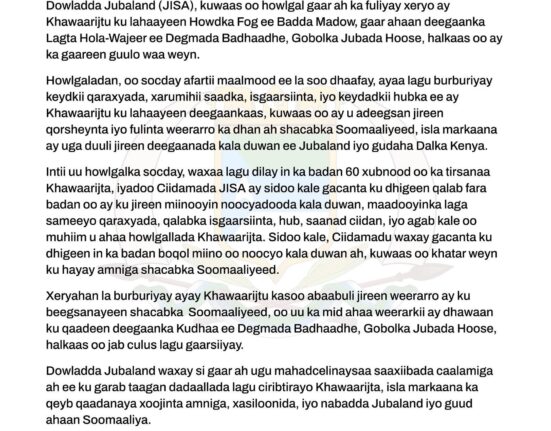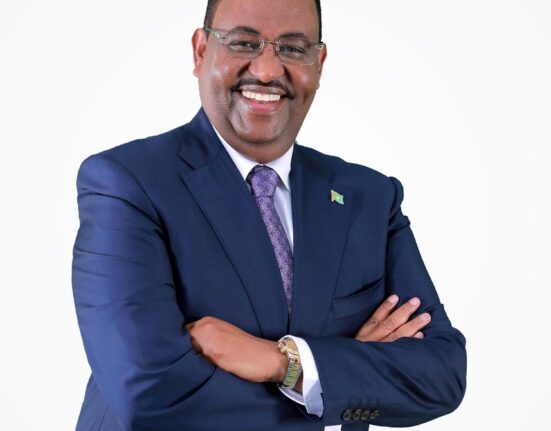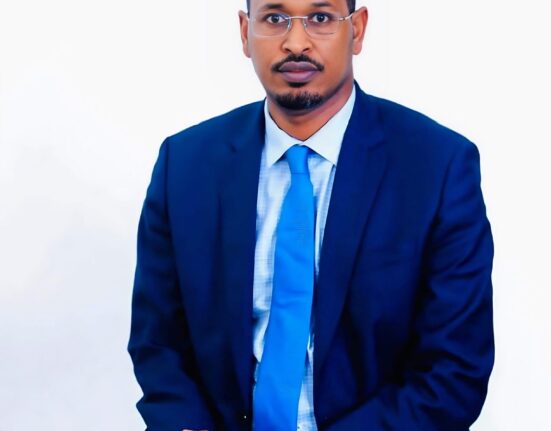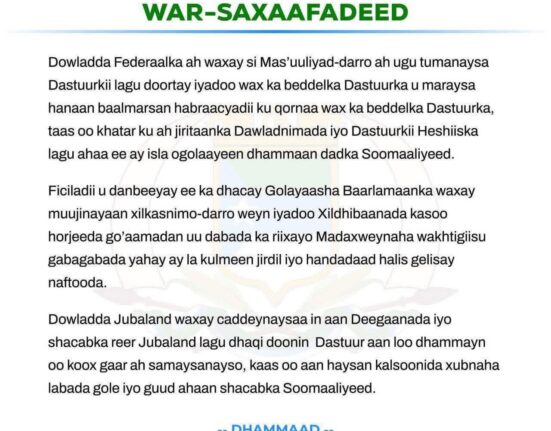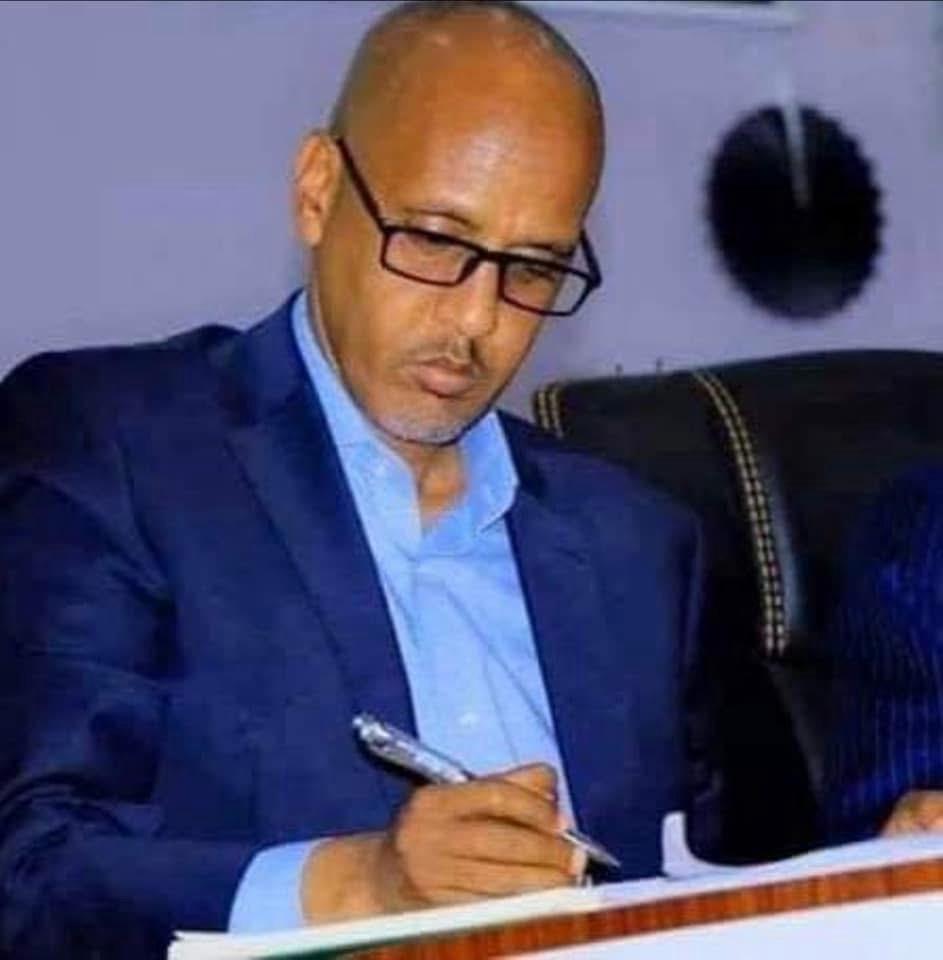
Introduction: A Nation Held Hostage by a Single Man’s DelusionThe Somali Regional State of Ethiopia, home to over 12 million people, is currently under the leadership of President Mustafe Omar, a man whose increasingly erratic behavior, vindictive politics, authoritarian tendencies, and obsessive control signal not just failed leadership but the dangerous traits of mental instability. This is not an accusation rooted in political rivalry or personal vendetta it is a loud and urgent call to examine the consequences of entrusting the future of a massive region to a man whose actions show deep psychological and behavioral disturbance.If Ethiopia is a federation of nations and nationalities, then the Somali Region is one of its most vulnerable limbs and today, it is under direct threat from within. Mustafe Omar has turned the Somali Regional State into a personal fiefdom, driven by paranoia, clan favoritism, power obsession, and absolute intolerance to criticism.This article explores the severe consequences of mentally unstable leadership on large populations, drawing from international case studies, historical experiences, and expert analysis, and ends with a firm call to action to the Federal Government, civic society, elders, and the international community to intervene before irreversible damage is done.I. Understanding the Psychological Risk of Leadership InstabilityLeadership requires rational thinking, emotional balance, empathy, and strategic vision. When a leader is psychologically unwell—or mentally unstable, the ripple effects on governance, peace, public trust, and even regional stability are catastrophic.Dr. Jerrold Post, a former CIA psychiatrist and expert on political psychology, once wrote:“When a leader suffers from delusions of grandeur, paranoia, and obsessive control, the state becomes a mirror of the leader’s mind.”Nowhere does this quote ring truer than in the Somali Region under Mustafe Omar’s rule.Some observable signs in Mustafe’s leadership include: • Extreme paranoia: He sees criticism as treason and dissent as conspiracy. • Obsessive centralization: No delegation of power, every office answers to him personally. • Vindictiveness and revenge politics: Critics and even neutral voices are silenced, jailed, or exiled. • Delusional propaganda: He creates a false image of development while crushing institutional integrity. • Detachment from reality: Despite growing poverty, conflict, and administrative collapse, he parades successII. What Happens When a Madman Leads Millions? Global Lessons 1. Idi Amin – Uganda (1971–1979)Amin ruled with violence, delusion, and ethnic hatred, leading to the deaths of over 300,000 people. His paranoia decimated institutions and displaced millions. Uganda became a failed state under a madman who believed he was chosen by God to rule forever. 2. Jean-Bédel Bokassa – Central African RepublicBokassa declared himself Emperor, squandered national resources, and executed students for protesting. His mental breakdown led to an empire of horror for a starving population. 3. Muammar Gaddafi – LibyaGaddafi’s erratic behavior and obsession with conspiracy theories weakened Libya’s institutions. He centralized all power under his cult personality—leading to decades of repression and eventual collapse into civil war. 4. Robert Mugabe – ZimbabweOnce a revolutionary hero, Mugabe’s mental and ideological rigidity led to the destruction of the economy and national institutions. Under him, millions fled the country due to inflation, oppression, and hopelessness.The Somali Region today shows all the early signs of such collapse under Mustafe Omar. The lesson is simple: when one man’s mental instability becomes the basis of national policy, the result is disaster, death, and displacement.III. How Mustafe’s Madness is Harming the Somali Region1. Institutional Collapse • Every regional institution is controlled by loyalists. Professionalism is replaced with sycophancy. • The parliament is silent. The justice system is weaponized. • Civil servants live in fear, unable to function independently.2. Worsening Clan Conflict and Division • Mustafe uses clan favoritism to maintain power, turning clans against one another. • He finances certain groups to silence others, deepening mistrust and potential civil strife.3. Human Rights Abuses • Political prisoners are held in notorious places like Havana Prison. • Torture, disappearances, and extrajudicial killings have become common, especially targeting journalists, scholars, and former regional officials.4. Economic Mismanagement and Corruption • Billions in development funds misused. Fake projects are commissioned for media, not public benefit. • Only companies tied to his inner circle benefit from contracts, suffocating real entrepreneurs.5. Foreign Policy Error and Isolation • Mustafe’s open alignment with foreign interests has created long-term regional insecurity. • His hostility to neighboring communities (like Oromo and Afar) threatens regional integration and peaceful coexistence.6. Youth Despair and Unemployment • The youth are without opportunities, and many are fleeing to Yemen or dying in the desert. • Education is in shambles. TVETs and universities are politicized.IV. What Must Be Done: Strong and Immediate Intervention RequiredThis situation is no longer a local administrative issue. It is a national security risk, a humanitarian crisis in waiting, and a betrayal of the Ethiopian federal order.Recommendations:1. Immediate Federal Investigation and Intervention • A high-level federal taskforce must investigate the human rights abuses, financial corruption, and political repression in the Somali Region. • The House of Federation should consider emergency administrative restructuring.2. Leadership Change and Transitional Administration • Mustafe Omar must be relieved from power and a neutral transitional administration installed—composed of respected elders, civil servants, and legal experts.3. International Human Rights Inquiry • Amnesty International, Human Rights Watch, and the UN Human Rights Council should be invited to document violations.4. Community Mobilization and Awareness • Scholars, elders, youth leaders, and diaspora must speak up boldly and publicly. • Civil society should begin peaceful advocacy campaigns across the region.5. Strengthen Institutional Autonomy • The regional parliament, judiciary, and media must be freed from the president’s grip and allowed to function independently.V. Final Word: Call to Action Before It’s Too LateThe Somali Region, with its proud history, resilient people, and rich potential, deserves better than to be the playground of a paranoid dictator. Mustafe Omar’s continued rule is not simply a political issue it is a mental health crisis writ large over a vast land.To all who care about the future of the Somali Region and the Federal Republic of Ethiopia, the time to act is NOW:“The world will not be destroyed by those who do evil, but by those who watch them without doing anything.”— Albert EinsteinLet us not wait for another genocide, mass migration, or state collapse. Let us end the reign of a dangerous man before the damage becomes irreversible.Authored by:By. Mohamed Hassan, Political CommentatorPublished on Horcurrent.com


